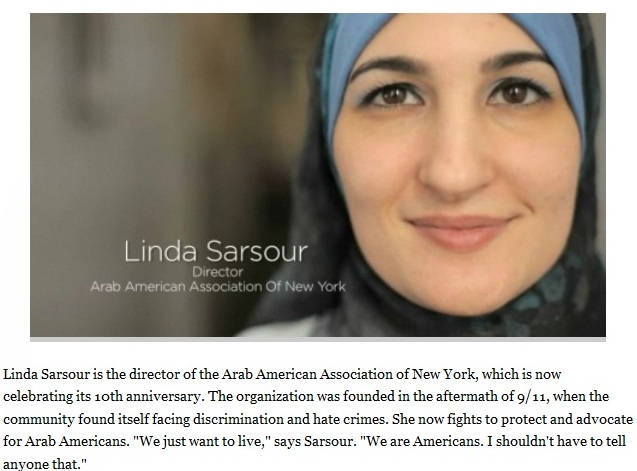Like most Americans, today I am remembering the terrorist attacks that occurred ten years ago. It’s a day that must be so painfully difficult for everyone who lost loved ones and I can’t even fathom how hard the last 10 years have been for them. No one should have to live through so much pain and sorrow.
During my reflection I’ve thought a lot about the impact of the 9/11 attacks. As we keep hearing over and over in the news, our country and our lives were forever altered, from the way we go through airports to the way we perceive our own security and sense of nationhood.
A few days ago when I was watching a powerful video clip featuring Linda Sarsour, director of the Arab American Association of New York, a few of her comments alluded to the impact 9/11 has had on the types of street harassment Muslim and Arab women face. It reminded me about some of the stories I’ve heard over the years.
Before 9/11, women who previously could wear a hijiab in public without facing harassment suddenly were told things like, “Go back to your country, stupid bitch,” by people they didn’t know on the streets. It didn’t matter to the harassers that there are plenty of “home grown” terrorists or that 99.9% of the population in every country around the world are not terrorists; they used 9/11 as an excuse and an opportunity to harass certain people, to engage in racial profiling. That is not okay.
One woman who shared a story for my Stop Street Harassment book said:
“As a Muslim woman who wears hijab (the headscarf and modest clothing), most of the feelings I have are due to religious discrimination and anti-immigrant sentiments. (Even though I am not an immigrant). I am constantly worried about being attacked verbally or physically because it has happened to friends of mine.”
And many women who do not wear hijabs but who simply have heritage in countries in the Middle East faced a different kind of street harassment after 9/11, too. I will always remember a story a woman shared during a workshop I attended at a Street Harassment Summit in New York City in 2007. She said:
“Street harassment is a huge part of my day and it makes me very angry and I think it’s always tied in with my racial identity. The worst thing that happened to me lately was I was on my way to work at a new job and I was very happy, and this guy said something to me and I kept walking and he came up around me in my face and said, ‘You look just like Bin Laden’s sister.’
My mouth was closed, and I was like, why aren’t I responding? He continued to scream at me and I kept walking, and he said, ‘You should get home, women like you don’t work. Don’t your men keep you locked up? Oh that’s right; your men aren’t real men. I’ll show you what a real man is.’
And he proceeded to tell me the actions that real men do to their women. People on the street were stopped and were staring at me but no one said anything.”
She was visibly upset and shaken when she relayed this horrifying incident. It had layer upon layer of offensiveness and hate. Given the hostility that some Americans willfully feel toward people they perceive to be potential terrorists, these kinds of street harassment incidents can be very frightening.
So, today, as we honor and remember all of those whose lives were lost, let us also vow to make sure our country becomes free from harassment, hate, racial profiling, and hostility for everyone. Call out people who harass others, show that it’s unacceptable. Help out people facing harassment. Every person should be able to feel safe and un-harassed in public, hijab or no hijab, dark skin or light skin, gay or straight. That’s how America should be.


beckie says
Yes, lets be inclusive, not exclusive, that’s what September 11th taught me!